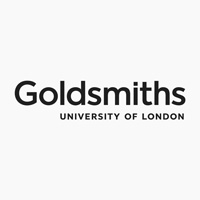fees waived
Computer Science, BSc (Hons)
Goldsmiths, University of London, United Kingdom
Ranking in UK
Computer Science and Information Systems
Computer Science
Computer Science
Costs
food & rent S$24.7k / year
Entry requirements
Scholarships
Limited quantity
Information
Code
Intakes
Website (External)
Programmes
Information
Duration
2029
The BSc Computer Science programme equips students for future technology careers by developing essential programming, computing, and mathematical skills through practical, project-based learning. Students gain expertise in areas like algorithmic thinking, full-stack web development, machine learning, and soft skills such as project management and user-centred design. The curriculum prepares graduates for roles including software engineer, technology consultant, and data scientist, while building a professional portfolio through hands-on projects like creating web applications, data visualisations, and games. No prior coding experience is required, as the programme starts from the basics and progresses to advanced topics like artificial intelligence and data mining.In the first two years, students complete core modules in programming, algorithms, and computer architecture, alongside electives. An optional industry placement year between the second and final year provides real-world experience, enhancing skills and career prospects. The final year includes a major project and optional modules in areas like neural networks and computer security. Assessment involves coursework, exams, group work, and projects, with successful placement participants earning a 'with work experience' endorsement.
Year 1 In your first year you'll take the following compulsory modules : Introduction to Programming User Experience and the Web Logic and Computer Architecture Computing Project 1 Graphics 1 Algorithms 1 Identity, Agency & Environment 1 Identity, Agency & Environment 2 Year 2 In your second year, you'll take the following compulsory modules. Software Development and Design Computing Project 2 Object Oriented Programming Algorithms 2 Fundamentals of Computer Science The Goldsmiths Elective Optional modules You'll then take 3 optional modules from the following list: Data Programming for Artificial Intelligence Interaction Design Networks and Operating Systems Information Security The Goldsmiths Project Optional placement year The degree includes an optional industrial placement year between the second and final year of study. You will be responsible for securing a placement, but we can support you through this process. The industrial placement year is a great opportunity for you to gain work experience, build confidence and contacts, develop your skills and industry insight, and enhance your career prospects. You'll be supported throughout your placement year by a placement tutor, who will provide you with guidance and liaison between you and your employer. Although we encourage you to take the opportunity of a placement year, it isn't compulsory and you can complete your degree in three years. Year 3/4 In your final year, you'll complete a compulsory project in Computer Science. Final Project in Computer Science Dynamic Web Applications Optional modules You'll also take up to 4 optional modules from a list produced annually by the Department of Computing. Some of the optional modules previously available on this programme have included: Neural Networks Computer Security Data Mining Physical Computing Please note that due to staff research commitments not all of these modules may be available every year.
A local representative of Goldsmiths, University of London in Singapore is available online to assist you with enquiries about this course.

